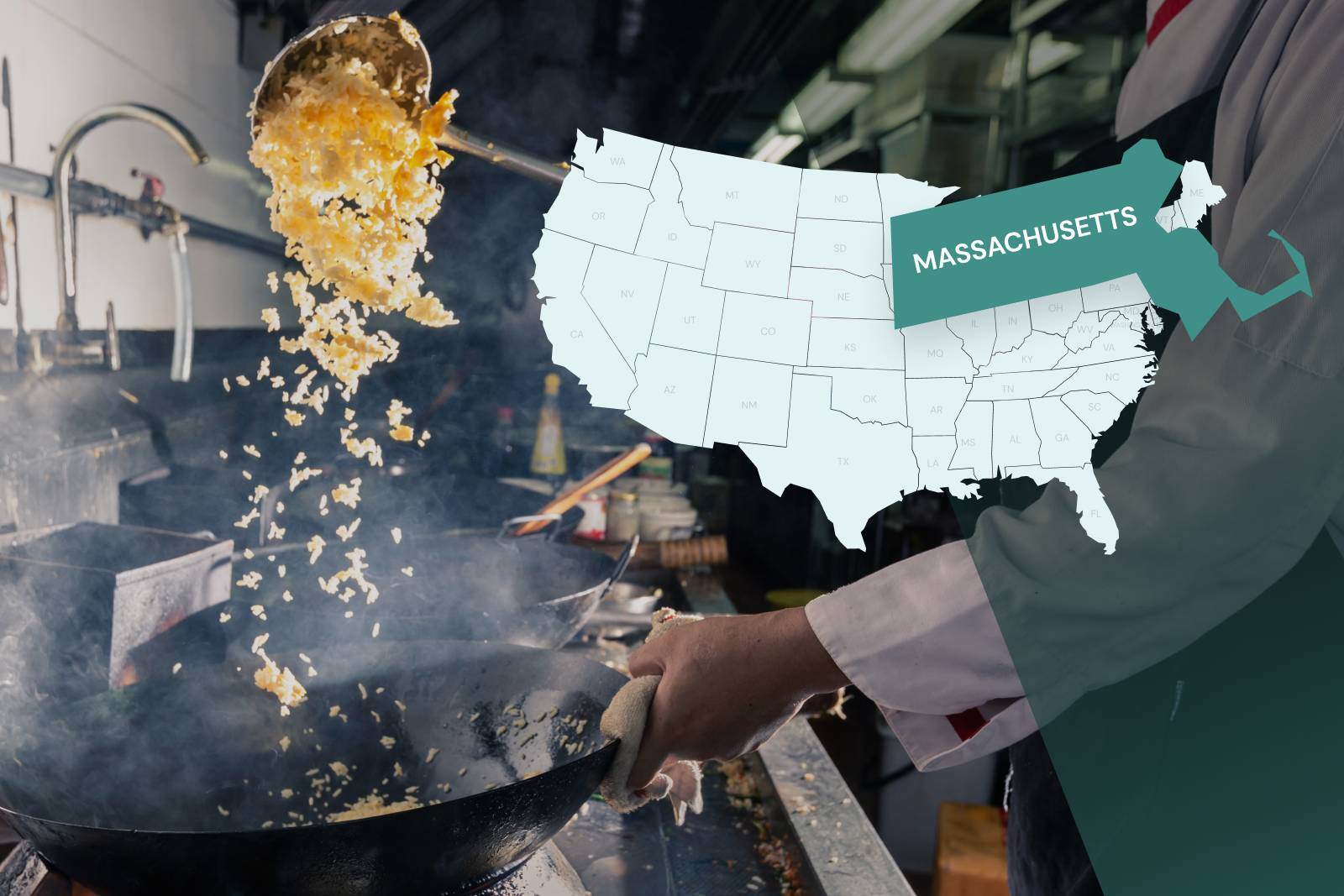One of the worst nightmares of a manager or operator of a food business is the realization that a foodborne illness outbreak has originated from their establishment. Unfortunately, these fears are not unfounded as a recent study found that more than half of all the foodborne illness outbreaks reported to the Centers for Disease Control are associated with eating in restaurants or delicatessens.1
Managers like you take on incredible responsibility and oversee the safety of the food you serve, your staff, and your customers. Learning to prevent a foodborne illness outbreak and what to do if you suspect (or confirm) someone has become sick from eating food from your establishment can help protect you, your customers and staff, and your business.
How can you prevent foodborne illness in your kitchen?
Prevention is the first line of defense when avoiding the consequences of a foodborne illness outbreak. Food can become unsafe in a few different ways. First and foremost, you want to ensure your establishment is sourcing food from reputable suppliers–you can’t make food safe to consume if it arrives at your door contaminated.
Storing food properly after receiving a delivery will also ensure harmful pathogens cannot grow in the food you plan to serve. It is critical to regularly check the temperature in your cooler and freezer to ensure your perishable food stays away from the temperature danger zone.
Ensuring you educate your team on safe food handling practices–including best handwashing practices–will play a massive part in preventing cross-contamination. A reputable food handler training will teach your team how to separate foods, cook food to the proper temperatures, and sanitize food contact surfaces for safe use. Managers can hold pre-shift mini-meetings to encourage a positive food safety culture and remind the incoming shift about the importance of following food safety best practices.
What are some common misconceptions?
There are a whole host of myths when it comes to foodborne illnesses, and many managers and operators believe an outbreak could never occur in their establishment. However, the simplest food safety missteps can result in large-scale consequences.
One of the most common misconceptions concerns the freshness of leftover dishes and ingredients. Many believe that if foods look or smell okay, they must be safe to eat. Staff should be well-versed in proper labeling processes and know how to use ingredients according to the FIFO method.
One misconception frequently harmful to a foodservice establishment is that a foodborne illness is caused by the last thing someone ate. While this could be true in some cases, it is most common for food poisoning to set in a few hours or even days after eating the contaminated food. This is why managers must understand how to properly investigate and handle reports of potential food poisoning from customers.
How do I manage reports of an outbreak?
Whether a report of a foodborne illness comes directly to the business or over social media or a review site, complaints should be taken seriously–mainly because symptoms can vary in severity and may lead to life-threatening health issues. When a complaint is brought up to you, the manager, it is also important to handle these reports efficiently and in a timely manner. The quicker the response time, the easier it will be to stay on top of the report.
Every establishment must handle reports professionally and compassionately–and never disrespectfully respond to customers. It will help maintain calmness and composure among your staff if you have a set procedure for investigating food poisoning claims against your business. Food Safety Magazine says it best: to show empathy without accepting responsibility–especially before you have completed a thorough investigation. You will want to collect and document A LOT of information along the way.2
Your management plan should include a form to document foodborne illness complaints. This will help you collect information that can be used by the health department or in a legal proceeding should a lawsuit be brought against your business.
This form should include the following:
-
Customer information (Name, phone number, email address)
-
When did the symptoms of their foodborne illness start?
-
What kind of symptoms are or did they experience?
-
Are their symptoms ongoing? If not, when did they subside?
-
Have they sought out medical advice yet? If so, ask for a copy of the doctor’s medical report.
-
Have they reported their illness to the health department or requested a laboratory analysis of their leftovers? If so, ask for a copy of the reports from these organizations.
-
What date and approximately what time did the customer eat at your establishment?
-
What dish(es) did they order? Were there any modifications or substitutions made to their order?
-
Did they come to your establishment alone or with a group? Did anyone from the group eat the same foods or experience the same or similar symptoms?
-
Did the customer take home leftovers and eat them at a later time? How did they reheat or serve the food the second time they ate it? If they have yet to reheat their leftovers, instruct them not to consume their leftovers for their safety since an internal investigation will be put into action. Record what you told them and the date and time of the interaction.
-
Did they eat other foods before and/or after dining at your establishment?
-
Can they share a copy of their receipt to verify the information they provided? If they cannot, try to find their past order through the establishment’s Point of Sales or ordering system and print it out.
You also should check in with your local health department and suppliers to see if any disease reports or food recalls have been announced that may impact the ingredients you have on hand.
What do I do if there is a verified foodborne illness outbreak?
In the case that ingredients from your establishment have caused a foodborne illness outbreak, you should contact your local health department to ensure that a thorough investigation can take place.
Best practices state that you should NOT discard foods served during the suspected outbreak period as they may need to be inspected further by either lab or food safety professionals. You may need to document purchase invoices for foods/ingredients, a list of ingredients for each menu item, the total number of meals or transactions, and copies of any illness complaint forms.
Have a system put into place: it is always better to be prepared than to be put into shock. Know exactly where the necessary data is kept and be able to have crucial information within arms reach. Establish an organization operation with your team regarding where to put information such as invoices and guest complaints.
If the health department sends inspectors to your establishment, follow their instructions. They will ask questions about your menu, food items, preparation process, and employees. You might also need to communicate with your suppliers if a recall is involved. Please be upfront and honest. Remember that customers’ lives and well-being may be at stake! The authorities rely on your help to determine what happened and protect public health.
Foodborne illness outbreaks have a large-scale and even global impact on the food industry.3 Managers and operators are ultimately responsible for reporting and managing the fallout from foodborne illnesses that originate in their establishment, so taking the necessary precautions is of the utmost importance. Educating your staff and taking the required steps to ensure the safety of your kitchen and food supply are two of the most important preventative measures you can use to reduce the risks and consequences of a foodborne illness outbreak.
Special thanks to Chef Haley Dalton of Fine Folk Pizza for contributing her expertise to this content.
Sources
1: National Library of Medicine: Contributing Factors in Restaurant-Associated Foodborne Disease Outbreaks, FoodNet Sites, 2006 and 2007
2: Food Safety Magazine: How Restaurant Operators Can Handle Food Poisoning Allegations
3: Food & Drug Administration: Public Health Advisories from Investigations of Foodborne Illness Outbreaks






